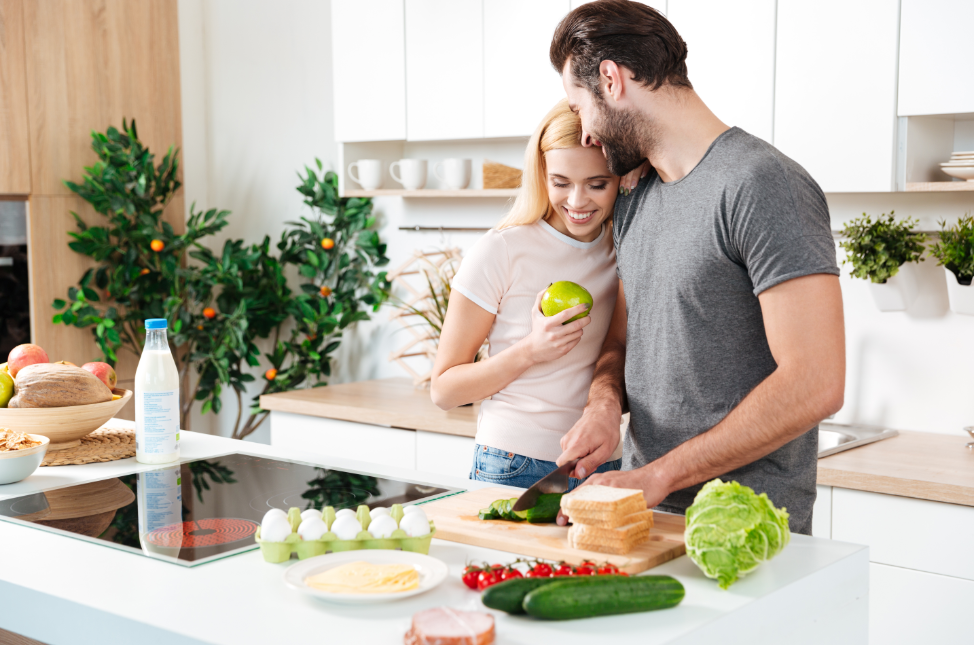
With so many eco-friendly alternatives on the market, it's not always easy to know how to start your sustainable journey. Fortunately, leading a green life is simpler than you think! Why not begin with your kitchen? You and your family probably spend a lot of time there – and it's where Americans create the most garbage.
Take a look at these ways to become low-waste.
Try New Storage Methods
It's time to rethink your storage methods. Did you know that plastic containers can create problems for your health as well as the environment? Most plastic-based objects contain the chemical Bisphenol A, which poses potential risks for humans. Additionally, plastic almost always makes its way to our oceans. There, it threatens marine wildlife for decades, as it doesn't break down entirely.
You can limit the issues associated with plastic when you use glass containers for food storage. It's also possible to reduce food waste altogether if you prepare the correct portions for your family. It's nice to have leftovers, but it doesn't make sense to cook extra food that goes untouched later on.
Plant a Home Garden
It's always best to grow your own vegetables and herbs at home when possible. You and your family can learn more about agriculture, all as you save money on your weekly food bill. It also provides a decent workout and exposure to vitamin D.
Homeowners with ample yard space can start planning a traditional garden — whether it’s a simple plot to start or a more expansive system of flower beds and herb gardens. Pick a few easy-to-grow vegetables to start and try your hand at managing soil, watering and pruning. Once you grow confidence, you can try out a wider range of edible plants.
Do you own a small home or rent an apartment? Many residents choose a window box or start with a raised garden as a way to conserve limited outdoor space. Choose your favorite seasonal plants – for summer, herbs include basil, mint and rosemary, while vegetables range from tomatoes to cucumbers. As long as you maintain this space with care, you'll enjoy fresh food throughout the next few months.
You can also create a compost pile where you collect food scraps, newspaper and cardboard. Once this pile breaks down, it makes an excellent natural fertilizer.
Buy From Bulk Stores
More and more bulk stores pop up every day. These shops offer zero-waste ways for you to buy your food. Think large dispensers that hold items like spices, grains and coffee. In some countries, businesses offer every product without labels or packaging. You can bring your own bags and containers so that you can buy as much as you want. As a result, you'll cut down on your plastic usage.
The next time that you need to stock up on pantry items, look around for a bulk store near you.
Avoid Plastic Shopping Bags
You should start to use totes and pouches when you head to the grocery store. Typically, people reach for a new plastic bag whenever they want to put a fruit or vegetable into their cart. They rarely use these plastic bags for other purposes, so why take them at all? Unfortunately, plastic doesn't only impact waterways. It also contributes to greenhouse gas emissions that negatively affect our atmosphere.
Do your best to bring only reusable bags to the supermarket. Aside from totes, many eco-friendly stores sell mesh pouches that you can use for produce.
Skip Single-Use Paper Items
When you eliminate your plastic consumption, it's easy to turn to paper as an alternative. However, you shouldn't run out to replace your plastic items with paper versions. The pulp and paper industry drives the world's deforestation issues across multiple countries. It even takes more energy and water to make paper objects than it does to create plastic materials. Therefore, it's almost always better to aim for reusable options. You can choose washcloths to replace your paper towels. As for napkins, try cloth options for those as well.
These Suggestions Can Jump-Start Your Sustainable Journey
There's so much that you can do to lead a low-waste life, especially when it comes to food. Try these ideas to get started.
Written by Holly Welles
About the Author
Holly Welles is a freelance writer with a focus on green building and design. She regularly writes for Environmental Magazine, Home Energy magazine and other online publications. More of her work can be found on her blog, The Estate Update.
You may also like
Green Home Renovations: 5 Eco-Friendly Kitchen Upgrades
6 Eco-Friendly Projects For Remodeling Your Kitchen
Eco-Friendly Plumbing Priorities Before You Leave for Vacation
